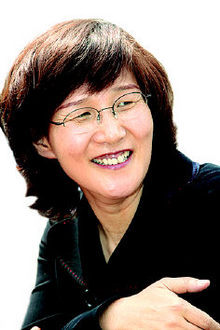Posted on : Oct.2,2006 14:09 KST
Kwon Taesun, Editorial Writer for the Hankyoreh
It is perfectly natural for a Korean reporter to encounter French citizens of Algerian heritage and be reminded of ethnic Koreans in Japan. Algerians’ fatherland has barely become independent after 100 years of French colonial rule and a gruesome liberation struggle, and now, instead of being in that fatherland, many live as citizens of the France they fought against. A great deal of ethnic Algerians in France live in slums and endure everyday discrimination, a situation tantamount to a colony within a nation. The psychological result of this discrimination was made painfully clear in the civil disturbance waged near the end of last year.
You can see, however, that the situation for Algerian French is much better than it is for Zainichi Koreans. At least Algerians have been made citizens of France, and have a government that represents them and full rights as granted by that government. They have, of course, faced a great deal of discrimination, and continue to do so today. The French Republic did not treat Algerian Muslims as equals with other French. In 1889, French law began giving citizenship to everyone born within the country - except Algerian Muslims, that is, who could acquire citizenship only through a separate naturalization process. When Algeria became independent in 1962, Algerians in France again became foreigners, a situation only rectified when the law giving those born in France citizenship was amended to include persons born in former colonies. Not that all Algerian immigrants were obsessed with getting French citizenship. Some among those, who still had fresh memories of the liberation struggle, refused French nationality. France left them breathing room, however, by allowing for dual citizenship.
Japan passed immigration laws in 1947, before North and South Korea had governments, that defined all Koreans there as foreigners and began requiring that they register as such. Koreans were then made to be citizens of a "Korea" that did not exist at that time as a nation. Some chose the South, after South Korea and Japan normalized relations, but everyone else remained part of a Korea that had disappeared from the Korean peninsula in 1948, which meant they were in effect nomads. They have dropped in status to the level of refugees, and despite being in Japan for over half a century, are unable to enjoy full rights of citizenship - including the right to vote or participate in local politics - in either Japan, North Korea, or South Korea. When they travel overseas, they are entirely dependent on a little slip of paper called a "permit to reenter Japan." There are restrictions on where they can travel, and while in foreign countries, they do not receive real consular protection from either Japan or Korea.
French immigration expert Patrick Weil, a professor at the University of Paris I, says that while there are problems with French assimilation policy, Japanese policy towards Zainichi Koreans is excessive. In Japan, anyone who wants to be naturalized has to go through a complicated, two-year process during which his past is investigated. If he is refused citizenship, he is never given an explanation as to why. The process is extremely arbitrary.
Zainichi Korean scholar Seo Gyeong-sik says the problems under which Koreans in Japan suffer are the cruel result of Japan’s failure to admit to the legacy of its colonial rule, and of the fact Korea is divided into North and South. However, it is a sin to let our brethren remain second-class citizens some 60 years after liberation. If Japanese emperor Akihito is serious about reflecting on Japan’s domination over the Korean peninsula, he needs to take action that gives Zainichi Koreans, the greatest victims of Japanese colonial rule, equal rights of citizenship with the Japanese people, regardless of whether they are naturalized or not. At the same time, North Korea, South Korea, and Japan all need to seriously consider permitting Zainichi Koreans to possess dual citizenship. It would be a sign that we are ready to treat the wounds of the past and move toward a new era of peace in East Asia.






